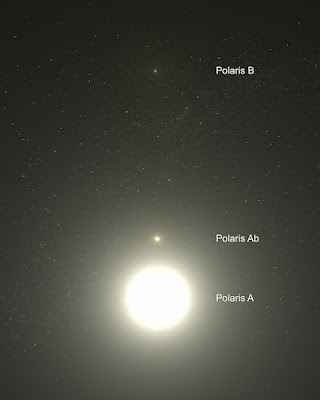“Ode”
(1873)
By
Arthur William Edgar O’Shaughnessy (1844-1881)
We are the music makers,
And we are the dreamers of
dreams,
Wandering by lone
sea-breakers,
And sitting by desolate
streams;
World-losers and
world-forsakers,
On whom the pale Moon
gleams:
Yet we are the movers and
shakers
Of the world forever, it
seems.
With wonderful deathless
ditties,
We build up the world’s
great cities,
And out of a fabulous
story,
We fashion an empire’s
glory:
One man with a dream, at
pleasure,
Shall go forth and conquer
a crown;
And three with a new song’s
measure
Can trample an empire down.
We, in the ages lying
In the buried past of the
Earth,
Built Nineveh with our
sighing,
And Babel itself with our
mirth;
And overthrew them with
prophesying
To the old of the new
world’s worth;
For each age is a dream that
is dying,
Or one that is coming to
birth.
A breath of our inspiration
Is the life of each
generation.
A wondrous thing of our
dreaming,
Unearthly, impossible
seeming –
The soldier, the king, and
the peasant
Are working together in
one,
Till our dream shall become
their present,
And their work in the world
be done.
They had no vision amazing
Of the goodly house they
are raising.
They had no divine
foreshowing
Of the land to which they
are going:
But on one man’s soul it
hath broken,
A light that doth not
depart,
And his look, or a word he
hath spoken,
Wrought flame in another
man’s heart.
And therefore today is
thrilling
With a past day’s late
fulfilling.
And the multitudes are
enlisted
In the faith that their
fathers resisted,
And, scorning the dream of
tomorrow,
Are bringing to pass, as
they may,
In the world, for its joy
or its sorrow,
The dream that was scorned
yesterday.
But we, with our dreaming
and singing,
Ceaseless and sorrowless
we!
The glory about us clinging
Of the glorious futures we
see,
Our souls with high music
ringing;
O men! It must ever be
That we dwell, in our
dreaming and singing,
A little apart from ye.
For we are afar with the
dawning
And the suns that are not
yet high,
And out of the infinite
morning
Intrepid you hear us cry –
How, spite of your human
scorning,
Once more God’s future
draws nigh,
And already goes forth the
warning
That ye of the past must
die.
“Great hail!” we cry to the
comers
From the dazzling unknown
shore;
Bring us hither your Sun
and your summers,
And renew our world as of
yore;
You shall teach us your
song’s new numbers,
And things that we dreamt
not before;
Yea, in spite of a dreamer
who slumbers,
And a singer who sings no
more.
“Ring
Out, Wild Bells” (1850)
By
Alfred, Lord Tennyson (1809-1892)
Ring out, wild bells, to
the wild sky,
The flying cloud, the
frosty light;
The year is dying in the
night;
Ring out, wild bells, and
let him die.
Ring out the old, ring in
the new,
Ring, happy bells, across
the snow:
The year is going, let him
go;
Ring out the false, ring in
the true.
Ring out the grief that
saps the mind,
For those that here we see
no more,
Ring out the feud of rich
and poor,
Ring in redress to all
mankind.
Ring out a slowly dying
cause,
And ancient forms of party
strife;
Ring in the nobler modes of
life,
With sweeter manners, purer
laws.
Ring out the want, the
care, the sin,
The faithless coldness of
the times;
Ring out, ring out thy
mournful rhymes,
But ring the fuller
minstrel in.
Ring out false pride in
place and blood,
The civic slander and the
spite;
Ring in the love of truth
and right,
Ring in the common love of
good.
Ring out old shapes of foul
disease,
Ring out the narrowing lust
of gold;
Ring out the thousand wars
of old,
Ring in the thousand years
of peace.
Ring in the valiant man and
free,
The larger heart, the
kindlier hand;
Ring out the darkness of
the land,
Ring in the Christ that is
to be.
Orphic Hymn
#77: “To Aurora”
Translated
by Thomas Taylor (1758-1835)
Hear me, O goddess! whose
emerging ray
Leads on the broad
refulgence of the day;
Blushing Aurora, whose
celestial light
Beams on the world with reddening
splendors bright:
Angel of Titan, whom with
constant round,
Thy orient beams recall
from night profound:
Labor of every kind to lead
is thine,
Of mortal life the minister
divine.
Mankind in thee eternally
delight,
And none presumes to shun
thy beauteous sight.
Soon as thy splendors break
the bands of rest,
And eyes unclose with
pleasing sleep oppressed;
Men, reptiles, birds, and beasts,
with general voice,
And all the nations of the
deep, rejoice;
For all the culture of our
life is thine.
Come, blessed power! and to
these rites incline:
Thy holy light increase,
and unconfined
Diffuse its radiance on thy
mystic's mind.
The
aurora australis (southern lights), as photographed from the International
Space Station. (Photo Credit: NASA – Public Domain via Wikimedia Commons)




